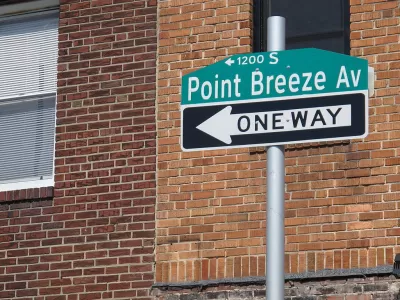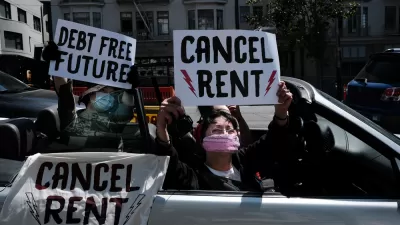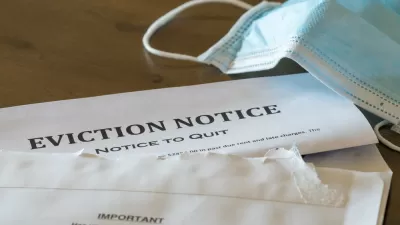In a typical pre-pandemic year, landlords in Philadelphia filed around 20,000 evictions. Last year, landlords filed just 4,500.

In a typical pre-pandemic year, according to research from the Reinvestment Fund, landlords in Philadelphia filed around 20,000 evictions. Between 2010 and 2019, that number shrank a bit, as employment, wages, and access to health insurance all inched upward, according to the group’s analysis. But rather than spiking when Covid-19 shut down the U.S. and put millions of people out of work, the eviction rate dropped. In 2020, landlords filed 4,500 evictions against tenants, according to the Philadelphia Eviction Prevention Project (PEPP), a coalition of legal aid and tenant advocacy groups.
The drop is thanks to a combination of federal moratoria on evictions, emergency rental assistance, and sustained local commitment to programs like eviction diversion, says Rasheedah Phillips, managing attorney for housing policy at Community Legal Services, one of the groups that coordinates PEPP. But Philadelphia is still one of the poorest big cities in America. And as the moratoria begin to expire this year, Phillips says, “The eviction rates are going to go right back up.”
The Philadelphia Eviction Prevention Project was launched at the beginning of 2018 with a $500,000 budget. Among the services the group provides are a tenant hotline for tenants to access legal services, a “lawyer-of-the-day” program providing free legal representation to tenants in eviction court, and frequent tenants’ rights workshops from the Tenant Union Representative Network. In 2019, PEPP had a budget of $2.1 million, and last year, after some budgetary negotiations during the pandemic fallout, it worked with $1.8 million, according to Phillips. This year, according to a report in WHYY, Mayor Jim Kenney’s proposed budget includes $931,000 for the project. (The city’s press office did not respond to questions about the proposal.) Advocates are now fighting to have at least $2.1 million restored for PEPP in the budget negotiation process between the mayor and city council.
FULL STORY: In Philadelphia, the Fight to Fund Eviction Prevention Continues

Maui's Vacation Rental Debate Turns Ugly
Verbal attacks, misinformation campaigns and fistfights plague a high-stakes debate to convert thousands of vacation rentals into long-term housing.

Planetizen Federal Action Tracker
A weekly monitor of how Trump’s orders and actions are impacting planners and planning in America.

San Francisco Suspends Traffic Calming Amidst Record Deaths
Citing “a challenging fiscal landscape,” the city will cease the program on the heels of 42 traffic deaths, including 24 pedestrians.

Defunct Pittsburgh Power Plant to Become Residential Tower
A decommissioned steam heat plant will be redeveloped into almost 100 affordable housing units.

Trump Prompts Restructuring of Transportation Research Board in “Unprecedented Overreach”
The TRB has eliminated more than half of its committees including those focused on climate, equity, and cities.

Amtrak Rolls Out New Orleans to Alabama “Mardi Gras” Train
The new service will operate morning and evening departures between Mobile and New Orleans.
Urban Design for Planners 1: Software Tools
This six-course series explores essential urban design concepts using open source software and equips planners with the tools they need to participate fully in the urban design process.
Planning for Universal Design
Learn the tools for implementing Universal Design in planning regulations.
Heyer Gruel & Associates PA
JM Goldson LLC
Custer County Colorado
City of Camden Redevelopment Agency
City of Astoria
Transportation Research & Education Center (TREC) at Portland State University
Jefferson Parish Government
Camden Redevelopment Agency
City of Claremont




























